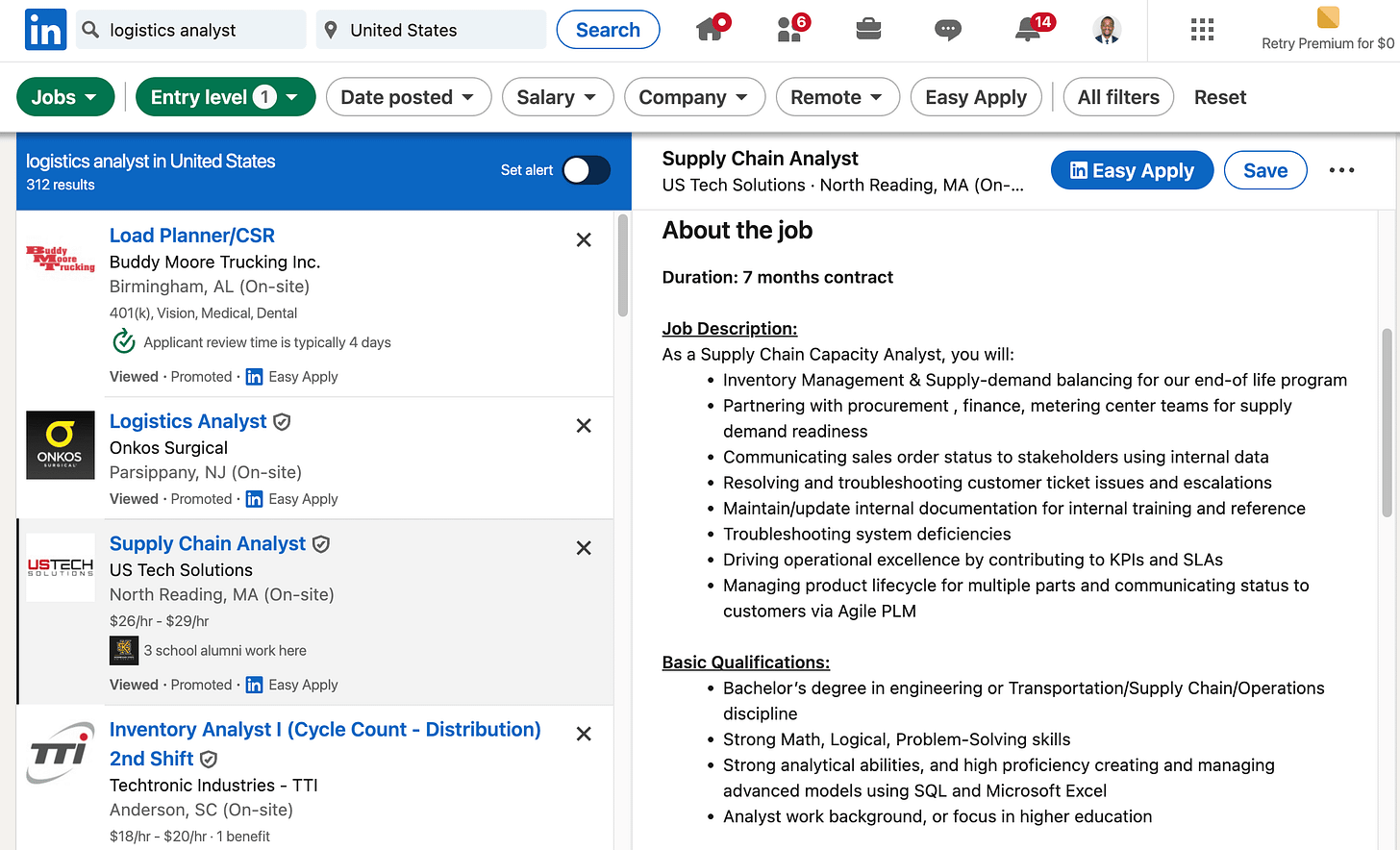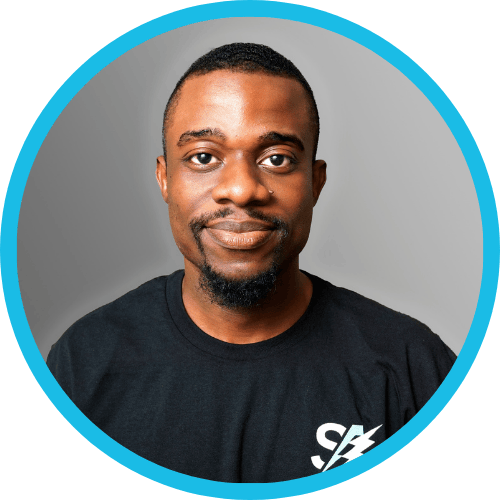3 Skills to Earn More as an African

Welcome to another edition of ScholAfrica. If this was forwarded to you, you can subscribe here.
Today, you will learn three skills you must develop to make more money.
My Story
All my life I've always wanted to be wealthy. To experience financial freedom. To be able to afford the experiences I want and to show up for my friends and family.
After university, my first job came in April 2019, when I worked as a graduate assistant. I was working at the Federal University of Technology Owerri (FUTO). It was an entry-level position, so I was getting N100,000 ($70) monthly. The money wasn't enough, so I had to look for more ways to make money.
That's when I remembered I had another skill: driving. I had learned how to drive when I was 16. I convinced my Dad to give me one of the cars in the house and I started using it for Uber (called Bolt in Owerri where I lived).
Then, I started driving Uber and made an extra N20,000 ($14) profit monthly. Remember I wasn't driving full time. Someone who drives full time will definitely make more than this.
My employment letter from FUTO stated that my employment was "temporary". And I had 3 years to get a master's degree or it would be terminated. I already wanted to get a master's degree so this was just more fuel for my goal.
I started my Master's at Bowling Green State University in August 2020. The master's degree is another mega skill stack. Each class you take gives you a skill. And I had to take 13 courses in my MS program. So I added 13 new skills in 2 years.
After my master's, I went for another mega skill stack: PhD
Suppose I chose to pursue a career immediately after my master's, data analysts in the US, about $6800 per month on average. That is almost 100 times more than what I earned as a GA in Nigeria.
This was primarily because of 2 things:
Location. (A data analyst job in the US pays more than the same role in any African country)
Skills. (Specifically, it was the skills developed during the US Master's degree that landed me the job)
I have created a lot of YouTube videos on the first point: changing your location. For that you need to learn 2 skills. The skill of getting scholarships and the skill of passing the US visa interview. I've compiled the videos you need in a playlist. Here is the one for scholarship and for visa.
This newsletter focuses on the second point: developing new skills — specifically, new skills to make more money. So you can live a more comfortable life and support your family and friends the way you've always wanted to.
Before we get to the relevant skills you need to develop, you need to learn about the wealth equation.
The Wealth Equation
Liquid Net Worth = Total Income - Total Expenses
Your liquid net worth is the money you own and you can access at any time. Your physical cash, money in the bank, etc.
The total income you earn is money received from the value you've created for the world.
The total expenses are the money you have given to buy things and experiences.
To become wealthy, your liquid net worth needs to be positive. The more positive it is, the wealthier you are. Your total income earned determines whether your LNW equation is positive or not.
Your total income earned is from the value you create.
Income = Value
What is value?
Value is created when pain is relieved. And pain is relieved when a problem is solved.
For example, a doctor provides value as better health for the patient. A YouTuber provides value by creating videos that educate or entertain. I provide value in this newsletter by teaching you how to make more money.
Your skills determine the value you can create. For example, what skills are needed to make great YouTube videos?
You need to know how to write good titles, make great thumbnails, storytelling, script writing, camera confidence, video production, video editing, understand people's problems, video pacing, social media promotion, community engagement, time management, personal branding, monetization strategies, the list goes on.
That is at least 14 skills needed to create value on YouTube. Now, some skills are more important than others, but to be successful, you need all of them.
This is why you need to learn skills. No matter what your undergraduate degree was, you can learn skills.
Your income will be based on your skills, not just if you have a degree or not. That is why you aren't employed based on your resume. You get interviewed to check if you have the skills they need.
To create more value, you need to have a lot of skills. It is popularly called skill-stacking.
Now let's talk about the three foundational skills you need to stack to become a money printing machine.
The 3 Money-Making Skills
Skill 1: Learn How to Learn
The foundation for freedom is the ability to teach yourself anything.
Learning any new skill is best done through a project. My process is to have a target
Professor Anders Ericsson is called the world expert on world experts. He studied a lot of experts like Michael Jordan, Tiger Woods, and Michael Phelps. He wanted to find out how they have deliberate practice. It is the secret to learning new skills.
The process is simple and has four parts:
They set a clearly defined stretch goal. For example, I want to write my Statement of Purpose (SOP) for US applications.
They put in full concentration and effort. I can start by watching some videos online on what makes a good SOP. Get a good sample to work with, then write my own with full concentration and no distractions.
There is immediate and informative feedback. I can send it to my friend who is studying abroad to help me review. Or build connections with them first through LinkedIn before sending my SOP.
Repetition with reflection and refinement. Then they implement the feedback on their SOP. Then the process is repeated until the SOP is perfect. Afterwards, it restarts with a new stretch goal.
The process of learning works for any skill: content creation, writing, scholarships, hair making, etc.
Skill 2: Communication
Communication is a skill that pays you for life.
A programmer who talks well makes more money than a good programmer who doesn't talk well.
Why?
Because no one knows what you can do. No one knows your abilities. No one knows how good you are.
Until you tell them.
Growing up in Nigeria, I was always told not to talk about myself. That my results will speak for me. I should be humble.
That advice has done me more harm than good.
In our global world today, anyone can learn anything with a phone and internet connection. You need to stand out. You need to be able to tell your story in a convincing way.
That's what the SOP really is. It is your communication tool to the admission committee on why they should give you money.
100 students are applying, why should they select you?
Skill 3: The Skills Needed in Your Field
Every industry is like a game, you need the right skills to win.
“One hour per day of study in your chosen field is all it takes. One hour per day of study will put you at the top of your field within three years. Within five years you’ll be a national authority. In seven years, you can be one of the best people in the world at what you do.”
~ Earl Nightingale
Whatever career path you've chosen has skills needed to stand out.
For example, I am a Data Scientist. In our field, you need to know languages like Python, SQL, R, or SAS. And skills like data visualization, data cleaning, model building, feature selection, using Excel, etc.
I started with a first degree in Maths and had to learn all those skills along my journey. I learned some of them in school (masters and PhD) and I learned the others on the internet. That is why I love YouTube University. It is free and you can learn anything there.
Find the necessary skills in your field and learn them.
How do you find them?
Go on LinkedIn.
Click the "Jobs" tab.
Type in the name of the job you want to do after studying.
Type in United States as location.
Then read through the job description and basic qualifications of that post. Write down the skills you observe there. Do this for 3-5 more postings, then you will see repetitions. Plan to learn those skills whether in school or on your own.
Putting It All Together:
“The capacity to learn is a gift; the ability to learn is a skill; the willingness to learn is a choice.”
~ Brian Herbert
As the world is changing, we also need to be flexible to change as well.
My first phone was a Nokia phone. They dominated the mobile phone industry for a long time. But they refused to change with the trends. We were moving towards smartphones (Android and iOS), but they didn't want to change, so people moved. Finally they changed, but it was too late.
Don't be Nokia, keep developing yourself and working on your skills.
You'll also need to add patience too. Good things do take time to build. Make sure that every day you are getting better. That you are improving and in 3-5 years you won't recognize yourself.
Reply to me and let me know which of these skills you'll be learning first. I'd love to hear from you.
That’s all for this week.
If you enjoyed it, please share it on Instagram, X, or LinkedIn and tag me.
See you next Wednesday.
Whenever you're ready, there are 2 ways I can help you:
The Scholarship Accelerator: My detailed mentorship program specifically designed to help you secure U.S. scholarships for your Master's and Ph.D. You will learn the 14 steps you need to take to relocate to the U.S., and a Telegram community to ask me any questions you have during the process.
F1 Visa Interview Consultation: Get your F1 visa in your next interview. I combine my five F1 visa interview experiences with my expertise in learning from visa officers to prepare you for your visa interview thoroughly. We will identify your strengths and prepare you to deliver them confidently. Your story is the secret to your visa approval.






